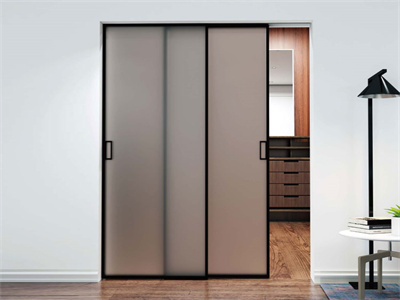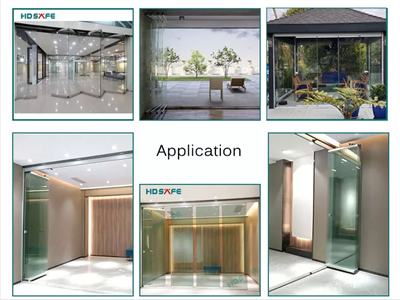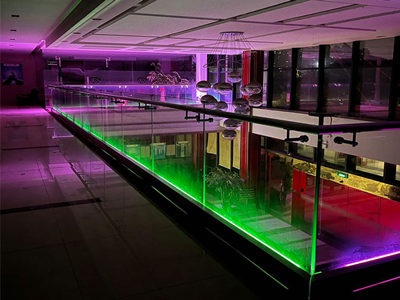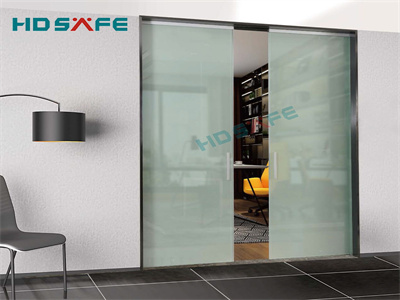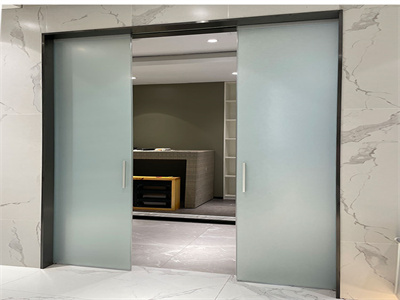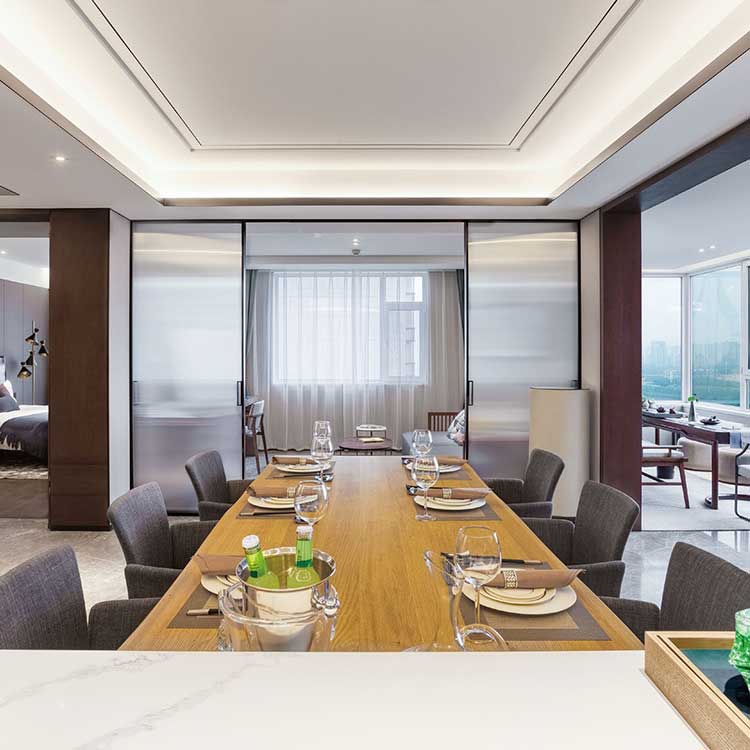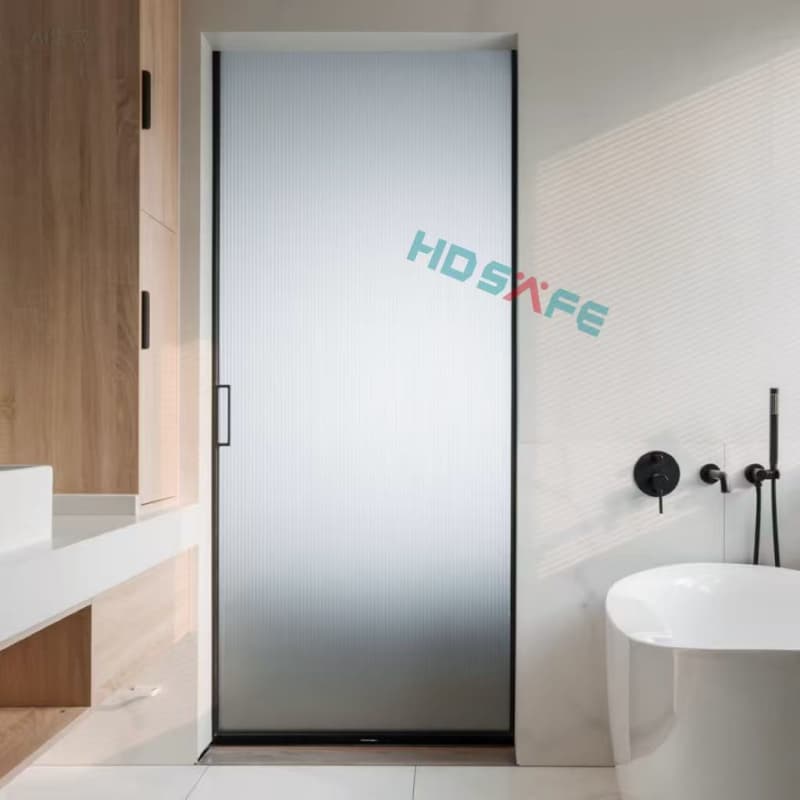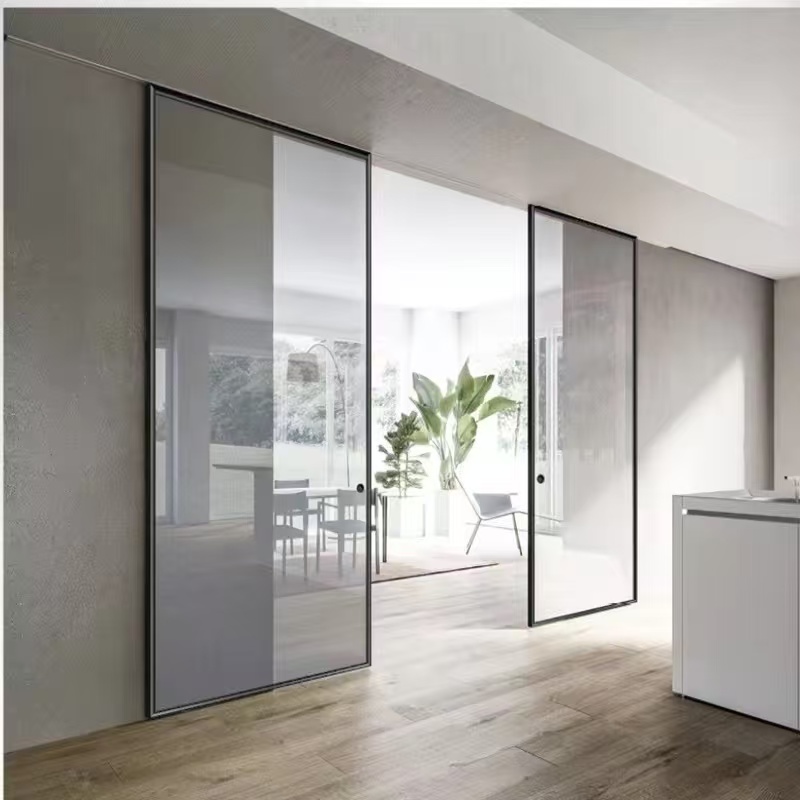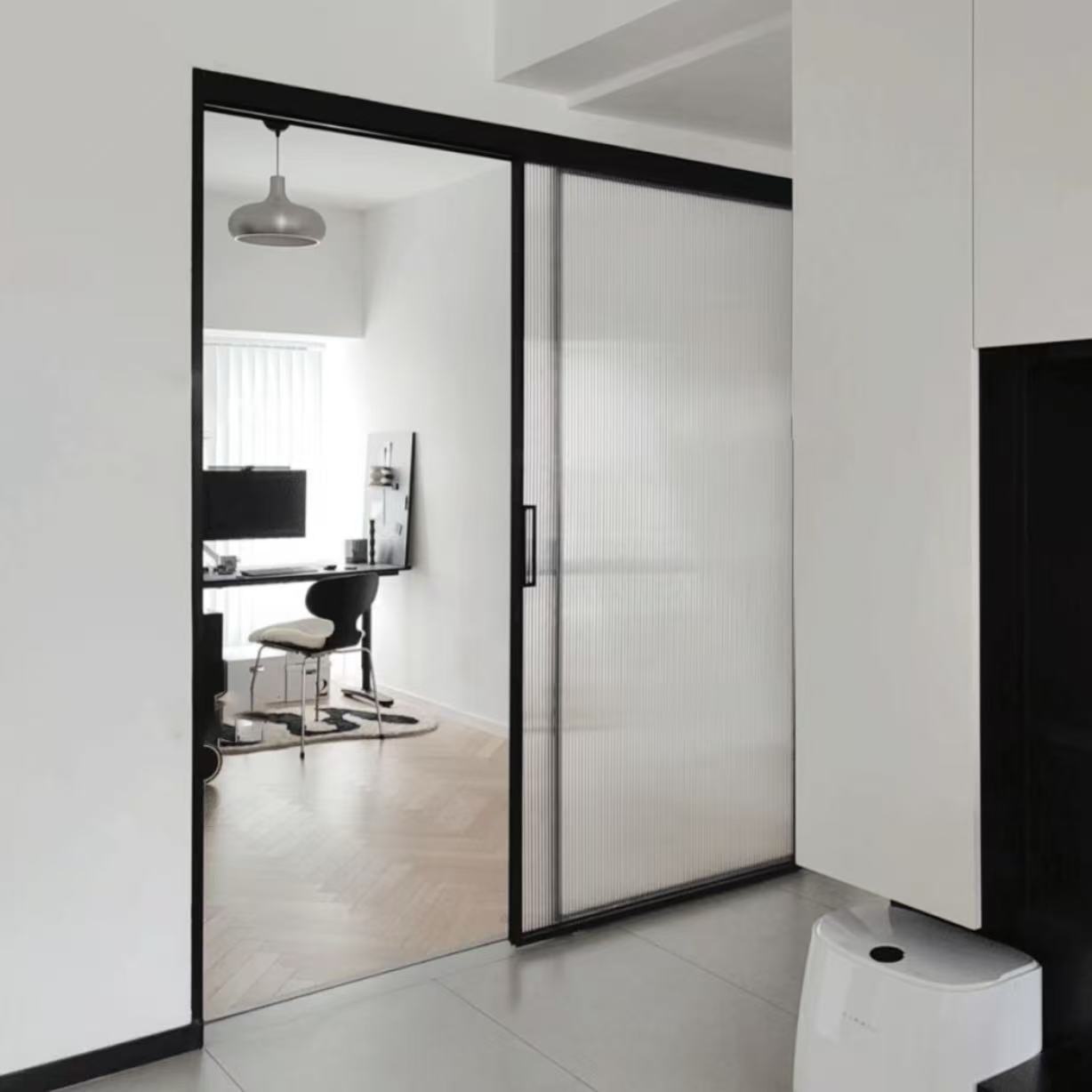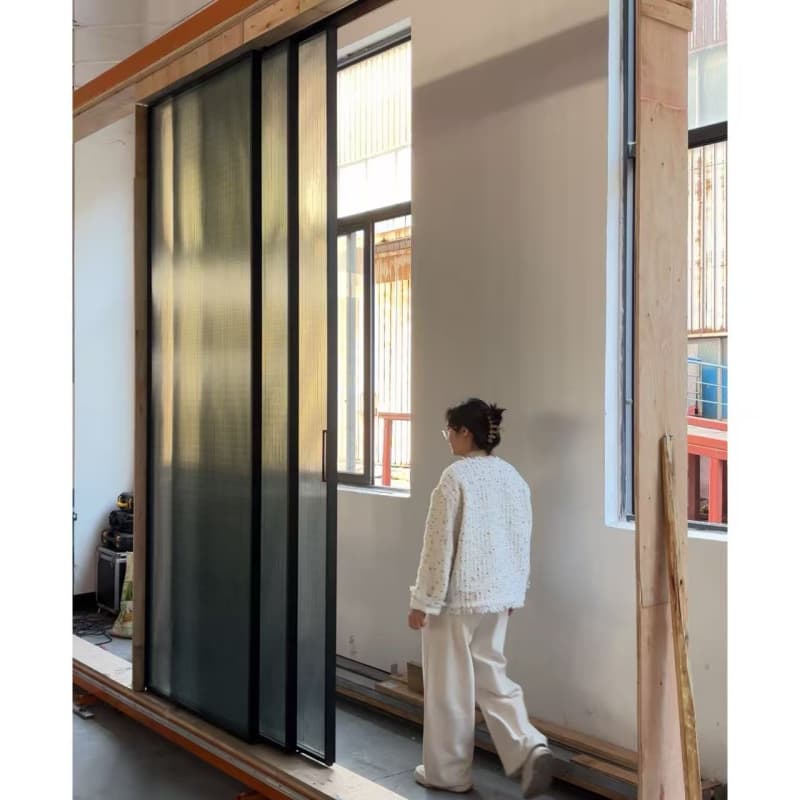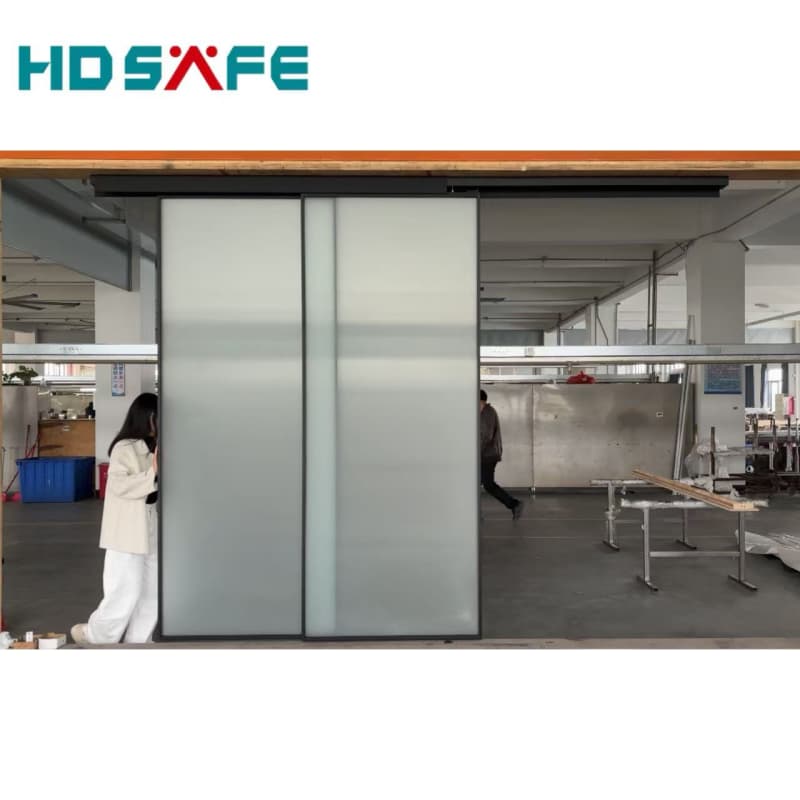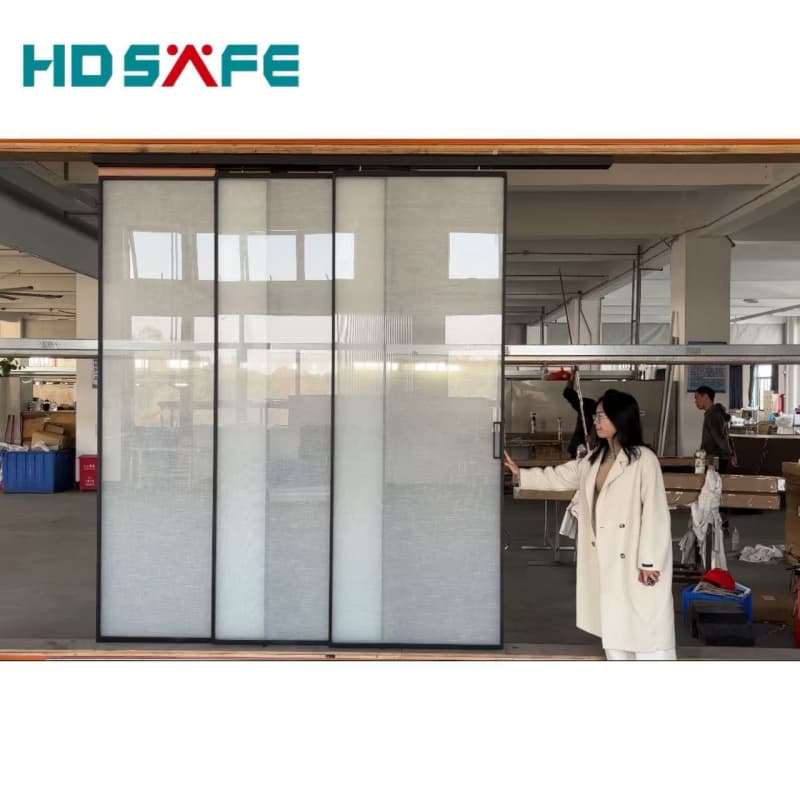Introduction:
Glass sliding doors have become increasingly popular in modern architecture due to their sleek design and multifunctional features. These doors not only allow natural light to flood into a space but also provide easy access to outdoor areas, making them a versatile choice for both residential and commercial properties.
Functionality and Aesthetics:
One of the key features of glass sliding doors is their ability to seamlessly merge indoor and outdoor spaces. By sliding open, these doors create a sense of continuity between the inside and outside, blurring the boundaries and expanding the living space. This functionality not only enhances natural ventilation and airflow but also allows homeowners to enjoy panoramic views of their surroundings.
Additionally, glass sliding doors are available in a variety of styles and designs, ranging from clear glass panels to frosted or tinted options. This versatility in aesthetics allows homeowners to customize their doors to suit their preferred level of privacy and design preferences. Moreover, the sleek and modern look of glass sliding doors adds a touch of elegance to any space, making them a popular choice for contemporary interior design.
Energy Efficiency and Sustainability:
In addition to their aesthetic appeal, glass sliding doors also offer energy-efficient benefits. The use of double or triple-pane glass in these doors helps to insulate the interior space, reducing heat loss in the winter and heat gain in the summer. This, in turn, contributes to lower energy consumption and reduced utility bills, making glass sliding doors a sustainable choice for eco-conscious homeowners.
Furthermore, the natural light that flows through glass sliding doors during the day reduces the need for artificial lighting, further decreasing energy usage. This not only benefits the environment but also creates a bright and welcoming atmosphere inside the home.
Safety and Security:
While glass sliding doors are known for their aesthetic and functional benefits, safety and security are also important considerations. Modern glass sliding doors are often equipped with safety features such as tempered glass, multi-point locking systems, and shatter-resistant coatings to enhance security and protect against potential intruders.
Moreover, the smooth sliding mechanism of these doors reduces the risk of accidents and injuries, especially in households with children or elderly individuals. By ensuring that the doors are installed correctly and maintained regularly, homeowners can enjoy the benefits of glass sliding doors without compromising on safety.
The versatility of glass sliding doors makes them a popular choice for modern architectural design. From their functionality and aesthetics to their energy-efficient benefits and safety features, these doors offer a range of advantages for homeowners and businesses alike. Whether used in residential properties, commercial buildings, or outdoor spaces, glass sliding doors can enhance the aesthetic appeal, functionality, and sustainability of any space.

Glass sliding doors have become a popular choice for modern homes and offices due to their sleek design, space-saving functionality, and ability to let in natural light. These doors are typically made up of several basic materials that work together to create a durable and attractive entryway or partition.
The main material used in glass sliding doors is, as the name suggests, glass. Tempered glass is commonly used for its strength and safety features. Tempered glass is created through a process of extreme heating and rapid cooling, which gives it increased strength compared to regular glass. This makes it less likely to break under pressure, and if it does, it shatters into small, blunt pieces rather than sharp, dangerous shards. Tempered glass is also more resistant to temperature changes, making it suitable for use in doors that may be exposed to different weather conditions.
In addition to tempered glass, glass sliding doors also feature metal frames or tracks to support the glass panels and allow them to slide smoothly. Aluminum is a popular choice for these frames due to its strength, durability, and resistance to corrosion. Aluminum frames are lightweight yet sturdy, making them ideal for supporting the weight of the glass panels while still allowing for easy operation of the door. The frames are often powder-coated in a variety of colors to complement different interior design schemes.
Another important material used in glass sliding doors is the hardware that allows the doors to slide open and closed. This includes tracks, rollers, handles, and locks. The tracks are typically made of aluminum or stainless steel to prevent rust and corrosion. The rollers are usually made of nylon or stainless steel to ensure smooth operation without damaging the tracks or glass panels. Handles and locks are often made of materials such as aluminum, stainless steel, or brass for durability and security.
Overall, the basic materials used in glass sliding doors—tempered glass, aluminum frames, and quality hardware—work together to create a functional and elegant entryway or partition for any space. With their clean lines, natural light transmission, and modern appeal, glass sliding doors have become a popular choice for both residential and commercial settings.

Glass sliding doors are a versatile and practical feature in modern architecture and interior design. These doors are made with large glass panels that slide horizontally to open and close, offering a wide range of benefits and applications in residential and commercial spaces.
One of the primary purposes of glass sliding doors is to maximize natural light in a room. These doors allow sunlight to filter through, brightening up the space and creating a more open and inviting atmosphere. In homes, glass sliding doors are often used to connect indoor living areas with outdoor spaces like patios, gardens, or balconies, seamlessly blending the boundaries between the interior and exterior. This not only enhances the aesthetic appeal of a space but also contributes to energy efficiency by reducing the reliance on artificial lighting during the day.
Another key advantage of glass sliding doors is their ability to provide unobstructed views of the surrounding environment. Whether overlooking a picturesque garden, a stunning cityscape, or a tranquil waterfront, these doors serve as a frame that showcases the beauty of the outdoors from the comfort of the indoors. This feature is especially popular in homes with scenic views, as it helps residents feel more connected to nature and creates a sense of spaciousness within the living area.
In terms of functionality, glass sliding doors are space-saving solutions that are perfect for rooms where swinging doors are impractical due to limited floor space. By sliding along a track instead of swinging open, these doors do not encroach on the room when in use, making them ideal for areas like small bedrooms, bathrooms, and closets. The smooth gliding motion of glass sliding doors also adds a touch of elegance and sophistication to any interior setting, enhancing the overall design aesthetic.
Furthermore, glass sliding doors can improve the flow and circulation of air within a space, especially when used as room dividers or partitions in open-plan layouts. By allowing for better ventilation and natural air movement, these doors help maintain a comfortable indoor environment and reduce the need for artificial cooling systems. This feature is particularly beneficial in warmer climates where cross ventilation is essential for cooling down living spaces without excessive energy consumption.
Glass sliding doors offer a myriad of benefits and versatile applications in both residential and commercial settings. From enhancing natural light and views to optimizing space and promoting airflow, these doors continue to be a popular choice for modern design enthusiasts seeking functionality, style, and practicality in their living or working environments. Whether used as patio doors, room dividers, or closet enclosures, glass sliding doors have become essential elements of contemporary architecture that effortlessly combine form and function.

Glass sliding doors have become a popular and versatile choice in modern architectural design. With their sleek appearance and functional benefits, these doors are being widely used in both residential and commercial settings. In this article, we will explore the applications of glass sliding doors and the advantages they offer.
One of the primary applications of glass sliding doors is in residential spaces, particularly in creating a seamless transition between indoor and outdoor areas. These doors are often used to connect living rooms or kitchens with patios, decks, or gardens, allowing natural light to flow into the house and creating a sense of spaciousness. Glass sliding doors also offer unobstructed views of the surroundings, bringing the beauty of the outdoors inside the home.
In addition to connecting indoor and outdoor spaces, glass sliding doors are commonly used in interior design to divide rooms while maintaining an open and airy feel. For example, they can be installed to separate a living room from a dining area or a home office from a bedroom. The transparency of the glass allows for visual continuity between spaces, making rooms feel larger and more cohesive.
Glass sliding doors are also frequently used in commercial settings, such as offices, retail stores, and hospitality venues. In office buildings, these doors are used to create private meeting rooms or offices that can easily be opened up for collaboration or events. In retail stores, glass sliding doors help showcase products while allowing customers to move freely between different sections of the store. In hotels and restaurants, these doors are often used to divide dining areas or event spaces, providing flexibility in layout and design.
One of the key advantages of glass sliding doors is their ability to maximize natural light in a space. Natural light has been shown to improve mood, productivity, and overall well-being. By allowing sunlight to enter a room, glass sliding doors help reduce the need for artificial lighting during the day, leading to energy savings and a more sustainable building design.
Another advantage of glass sliding doors is their space-saving design. Unlike traditional swing doors that require clearance space to open and close, sliding doors slide along a track, making them ideal for rooms with limited space. This makes them a popular choice for small apartments, compact office spaces, and areas with tight corridors.
Glass sliding doors are a versatile and stylish option for both residential and commercial applications. Their ability to seamlessly connect indoor and outdoor spaces, enhance natural light, improve spatial flow, and save space make them a valuable addition to any building design. Whether used in homes, offices, retail stores, or hospitality venues, glass sliding doors provide functional benefits while adding a touch of modern elegance to the space.
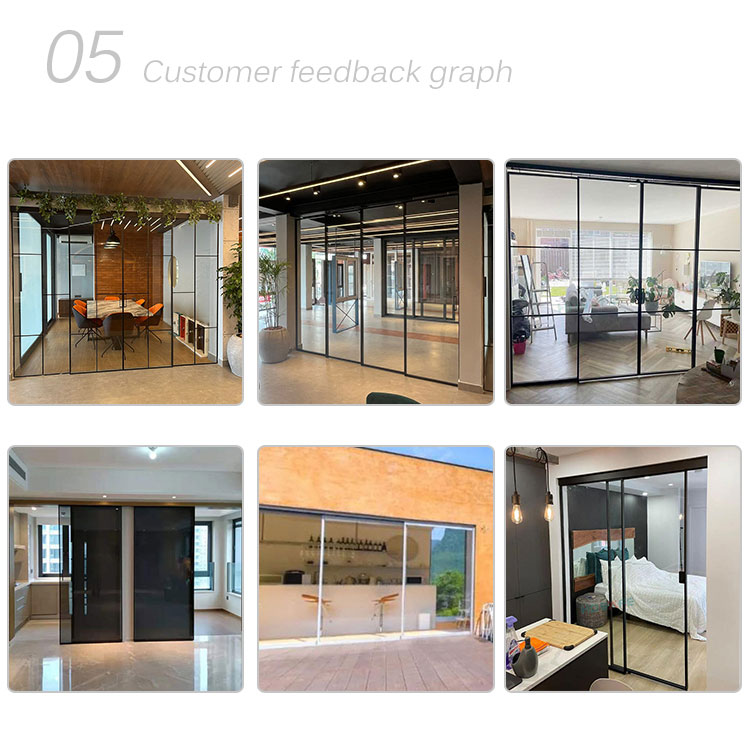
Glass sliding doors are a popular choice for homes and businesses due to their functionality and aesthetic appeal. These doors consist of large panels of glass that slide along a track to open and close, providing a seamless transition between indoor and outdoor spaces. In this article, we will explore the various functions of glass sliding doors and discuss why they are a practical and stylish option for any space.
One of the key functions of glass sliding doors is their ability to maximize natural light in a room. The expansive glass panels allow sunlight to flood into the space, creating a bright and welcoming atmosphere. This not only reduces the need for artificial lighting during the day but also helps to create a sense of openness and connectivity with the outdoors. The abundance of natural light can also have a positive impact on mood and well-being, making glass sliding doors an excellent choice for spaces where people spend a lot of time, such as living rooms and offices.
In addition to their ability to bring in natural light, glass sliding doors also offer excellent views of the surrounding environment. Whether installed in a residential property with a beautiful garden or a commercial space with a stunning outdoor view, these doors provide a seamless connection to the outside world. This can help create a sense of spaciousness and tranquility, making the interior space feel larger and more inviting. Additionally, the unobstructed views offered by glass sliding doors can enhance the overall aesthetic of a room and create a sense of harmony between the indoor and outdoor spaces.
Furthermore, glass sliding doors are highly functional in terms of ventilation and airflow. By simply sliding the door open, fresh air can flow into the room, helping to regulate temperature and create a comfortable environment. This is especially beneficial during the warmer months when natural ventilation can help reduce the need for air conditioning. In addition, the ability to open up a large expanse of the door allows for easy access to outdoor areas, such as patios or gardens, making it convenient for entertaining guests or simply enjoying the fresh air.
Another important function of glass sliding doors is their space-saving design. Unlike traditional swinging doors that require clearance space to open and close, sliding doors operate parallel to the wall, making them ideal for rooms with limited space. This makes them a practical choice for small apartments, narrow hallways, or areas where swinging doors would be impractical. The smooth and effortless operation of glass sliding doors also adds to their convenience and ease of use, making them a popular choice for homeowners and designers alike.
Glass sliding doors offer a range of functions that make them a versatile and stylish choice for any space. From maximizing natural light and providing unobstructed views to enhancing ventilation and saving space, these doors have much to offer in terms of both form and function. Whether used in residential homes, commercial spaces, or industrial settings, glass sliding doors can elevate the design of a space while improving its functionality. With their sleek and modern aesthetic, these doors are sure to remain a popular choice for years to come.

Glass sliding doors can add a touch of elegance and modernity to any home or office space. However, before making a purchase, there are several important factors to consider to ensure that you select the right door for your needs.
First and foremost, it is crucial to consider the size of the space where the glass sliding door will be installed. Measure the width and height of the doorway to ensure that the door you choose fits perfectly. Additionally, consider the space required for the door to slide open and closed without any obstructions.
Another important consideration is the type of glass used for the door. Safety should always be a top priority when selecting a glass sliding door. Look for doors made with tempered glass, which is much stronger and safer than regular glass. Tempered glass is designed to shatter into small, blunt pieces when broken, reducing the risk of injury.
In addition to safety, energy efficiency is another key factor to consider when purchasing a glass sliding door. Look for doors that are double or triple glazed to provide better insulation and reduce heat loss. This will not only help lower your energy bills but also create a more comfortable indoor environment.
When it comes to the design of the glass sliding door, there are numerous options to choose from. Consider the style of your home or office and choose a door that complements the existing decor. From frameless glass doors for a sleek and minimalist look to doors with decorative patterns or frosted glass for added privacy, there are endless design possibilities to explore.
Lastly, don't forget to consider the hardware and accessories that come with the glass sliding door. Ensure that the door comes with high-quality tracks and rollers that allow for smooth and easy operation. Additionally, consider adding features such as a soft-close mechanism or a key lock for added security.
Purchasing a glass sliding door requires careful consideration of factors such as size, safety, energy efficiency, design, and hardware. By taking the time to evaluate these aspects, you can select a door that not only enhances the aesthetics of your space but also provides functionality and longevity.

Glass sliding doors are not only stylish and modern, but they also add functionality and natural light to any space. Installing a glass sliding door can transform a room and create a seamless transition between indoor and outdoor living areas. However, the installation process can be tricky, and it requires precision and attention to detail. In this comprehensive guide, we will walk you through the steps involved in installing a glass sliding door.
Step 1: Measure and Prepare
Before you begin the installation process, it is crucial to accurately measure the space where the glass sliding door will be installed. Measure the width and height of the opening to ensure that the door will fit properly. Ensure that the floor is level and that there is enough space for the door to slide open and closed without obstruction.
Step 2: Remove Existing Door (if applicable)
If there is an existing door in place, carefully remove it before proceeding with the installation of the glass sliding door. This may involve unscrewing the hinges and carefully lifting the door out of its frame. Make sure to clean and prep the opening before installing the new door.
Step 3: Install the Track and Frame
The track is an essential component of a glass sliding door as it allows the door to slide open and closed smoothly. Install the track according to the manufacturer's instructions, making sure it is level and securely attached to the floor and ceiling. Next, install the door frame, ensuring that it is square and level before securing it in place.
Step 4: Mount the Glass Panels
Carefully lift the glass panels into place, making sure they fit snugly within the frame. Use shims to make any necessary adjustments to ensure the panels are level and plumb. Secure the glass panels in place according to the manufacturer's guidelines, being careful not to overtighten screws or fittings.
Step 5: Install the Door Handle and Lock
Once the glass panels are securely in place, install the door handle and lock according to the manufacturer's instructions. Test the door to make sure it slides smoothly and that the lock functions correctly.
Step 6: Make Final Adjustments
After the glass sliding door is installed, make any final adjustments necessary to ensure that it operates smoothly and seals properly. Check for any gaps or drafts around the door and make adjustments as needed to improve insulation and security.
Installing a glass sliding door can be a rewarding project that adds beauty and functionality to your space. By following the steps outlined in this guide and paying attention to detail, you can successfully install a glass sliding door that enhances the aesthetics and usability of your home.

The Future Trends of Glass Sliding Doors
Glass sliding doors have been a popular choice for homeowners and businesses alike due to their aesthetic appeal, functionality, and space-saving qualities. As we look towards the future, it is evident that glass sliding doors are poised to undergo significant advancements and changes that will revolutionize the way we think about and use these versatile doors.
One of the key trends that we can expect to see in the future of glass sliding doors is the integration of smart technology. As advancements in technology continue to accelerate, it is only natural that glass sliding doors will be adapted to be more smart and connected. Imagine being able to control your glass sliding doors remotely through an app on your phone, or having them automatically open and close based on your proximity. Smart sensors could detect changes in temperature or light levels, adjusting the doors accordingly for optimal comfort and energy efficiency. This integration of smart technology not only enhances convenience but also paves the way for more sustainable and energy-efficient living spaces.
Another exciting trend on the horizon for glass sliding doors is the advancement in materials and design. Traditional glass sliding doors have typically been limited to clear or frosted glass, but with advancements in materials technology, we can expect to see a greater variety of options available. From tinted glass that provides enhanced privacy and UV protection to energy-efficient glass that helps regulate indoor temperatures, the possibilities are endless. Additionally, innovative designs that incorporate elements such as embedded LED lighting, customizable patterns, and even interactive displays are likely to become more prevalent, adding a touch of creativity and personalization to any space.
Furthermore, sustainability will play a crucial role in shaping the future of glass sliding doors. With a growing focus on eco-friendly practices and energy conservation, manufacturers are increasingly exploring ways to make glass sliding doors more sustainable. This includes using recycled materials, improving insulation properties, and incorporating technologies that reduce heat loss or gain. Additionally, the integration of solar panels into the glass itself could potentially turn glass sliding doors into energy-generating surfaces, contributing to a more sustainable and self-sufficient building design.
The future of glass sliding doors is bright and full of exciting possibilities. With the integration of smart technology, advancements in materials and design, and a focus on sustainability, glass sliding doors are set to become even more functional, aesthetically pleasing, and environmentally friendly. Whether in residential homes, commercial spaces, or public buildings, glass sliding doors will continue to be a versatile and practical choice for years to come.





 Home
Home May 20,2024
May 20,2024 
 Benefits of Glass Door Partitions.
Benefits of Glass Door Partitions. 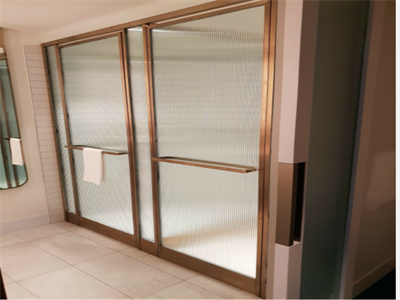
 Apr 09,2024
Apr 09,2024 
